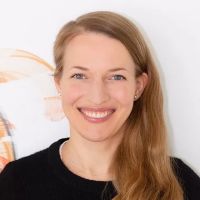Stem cell size affects ageing

The physical size of stem cells increases as we get older. This causes malfunctions in the cells, preventing their normal activity. A research team led by Jette Lengefeld is studying the effect of stem cells on our ageing. The research is partly funded by a grant from the Instrumentarium Science Foundation.
Studies have shown that the size of stem cells is an important factor in their functionality. However, research has yet to reveal how the size of stem cells affects cell functionality. It also remains unknown whether the size of stem cells also affects ageing-related diseases.
"Together with our research team at the University of Helsinki, we’re investigating the functionality of blood stem cells in the blood and the effect of their size on ageing. We’re reducing the size of stem cells to see what impact the change has on ageing. We’re also using differently-sized cancer stem cells and investigating the effect on the development of cancer", explains Lengefeld. She believes that the research work of the team based at the Institute of Biotechnology of the University of Helsinki is significantly advancing scientific research and may lead to different treatments for ageing-related diseases, such as cancer.
In spring 2022, Jette Lengefeld received a Fellow Grant of EUR 100,000 for this research from the Instrumentarium Science Foundation.
New cures for diseases
Before coming to Helsinki, Lengefeld studied biology in Germany and Switzerland. During her work at MIT after her doctorate, she became interested in stem cells and their effect on ageing. In 2021, she started her own research group at the Institute of Biotechnology of the University of Helsinki.
"Stem cells are fascinating, and they are important cells throughout the human lifespan. Stem cells are able to regenerate, which means we can use them to develop treatments for leukaemia, diabetes, heart disease, and vision and hearing problems, for example. I decided to study the relationship between stem cells and ageing because there is still a lot of work to be done and we need to understand stem cells better so that we can develop better treatments for the above mentioned diseases", Lengefeld says of her interest in this research area.
Longer lives for humans
By using stem cells we can thus rejuvenate injured and obsolete tissues. This has been also observed more widely in the scientific community, and many laboratories are investigating the different uses of stem cells.
"I’m very optimistic that in the next few years, intensive stem cell research will enable us to extend people's health-spans and cure many diseases. We’re conducting our stem cell research in practice under the ‘Lengefeld Lab’ brand. We are an international research group comprised of motivated, competent researchers from the University of Helsinki. We utilise mice and bone marrow donated by cancer patients in our research", says Lengefeld.
Grant to pay for new research tools
According to Lengefeld, the Instrumentarium Science Foundation grant is exceptionally important for their research. It will make it possible to achieve ambitious research objectives.
"Thanks to the grant, we will be able to acquire new research equipment. Biological research has made significant progress over the last ten years, which has mainly been due to developments in research equipment. So we are very grateful for the important support we have received from the Instrumentarium Science Foundation".
Text: Kai Tarkka
Translation: Alice Lehtinen
Picture: Lengefeld Lab
